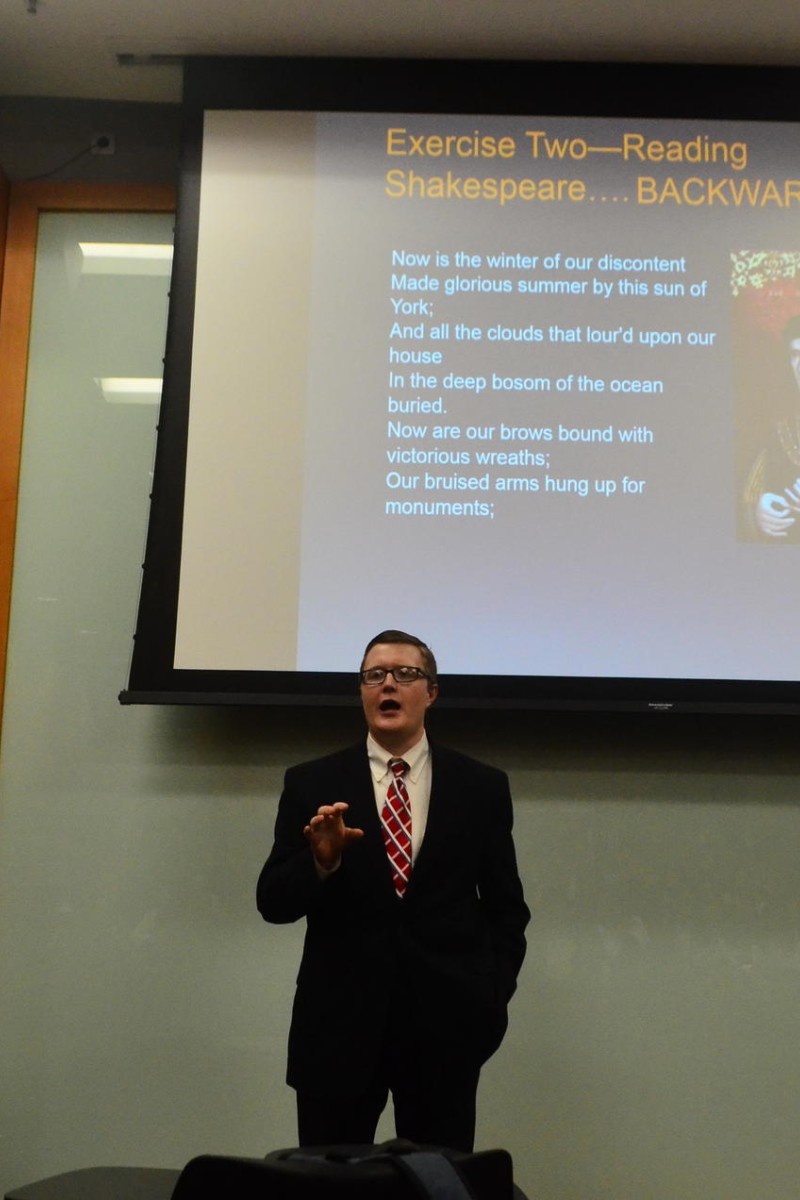
Social mobility is a growing issue for the city's young people, so the Hong Kong Outstanding Students' Association tackled the problem at the Youth Summit 2015
 Robert Mingey gave helpful tips about public speaking.
Robert Mingey gave helpful tips about public speaking.Against the backdrop of rising retirement age and skyrocketing property prices, young adults in Hong Kong are facing more and more obstacles as they struggle to move upwards in society. Many are asking if the city is still a land of opportunity. Some experts believe that instead of offering chances to young people, Hong Kong's social mobility - or the chance to change your social status - is at a record-low level.
The 'sticky floor phenomenon'
Most of the time, success in a professional career depends on "socio-demographic variables": your age, gender, your parents' occupation, your educational background, housing conditions, race, ethnicity and other factors often outside of your control. This makes it difficult to move from one social class to another. In Hong Kong, the rich stay rich and the poor stay poor. This limit on social mobility is known as a "sticky floor".
This term can apply to industries as well. In Hong Kong, creative industries appear to be stuck at the lowest rung of the city's development agenda, making it difficult to get funding and move up to a higher status.
Beyond the individual
The idea of being stuck where you are is a problem not only for the individual, but for the city as well. People become more frustrated and disappointed, especially those from the lower classes.
A lack of social mobility also puts more pressure on the middle class, as they worry more about "losing at the starting line".
When youngsters in Hong Kong feel they cannot improve or move up, they start to view their future through grey-tinted glasses. With no motivation to try to progress, this "sticky floor" will eventually hold back Hong Kong's economy as well.
While some view Hong Kong as "restrictive", others disagree. The Hong Kong Outstanding Students' Association brought up all these issues together at the Hong Kong Youth Summit 2015 (HKYS 15) with the theme "Releasing the Sticky Floor - The Stagnation of Social Mobility".
HKYS 15 got off to an energetic start with the Orientation Day and Delegate Training Session on March 1. It was a memorable Sunday packed with carefully prepared social events. They helped participants get to know each other before the start of intensive debates over the next few weeks.
Perfect preparation
The highlight of the day was a seminar on effective public speaking conducted by Arch education instructor and consultant, Robert Mingey. Mingey provided helpful tips on how to get your audience's attention when giving a speech. It was the perfect way to prepare participants for the upcoming events.
Participants are now looking forward to four days of exciting conferences between March 14 and April 4.
Different views
About 100 secondary school students will represent different Hong Kong stakeholders, including big corporations, the elderly, the government, low-income groups, middle-income groups, new immigrants, and youngsters.
They will defend their interests while striving to solve social mobility issues.
The guest speakers will include the president of the Legislative Council Jasper Tsang Yok-sing, head of the department of surgery at the University of Hong Kong's Faculty of Medicine Dr Lo Chung-mau, undersecretary for labour and welfare Stephen Sui Wai-keung, and undersecretary for education Kelvin Yeung Yun-hung.
From these seminars, debates and discussions, students will gain a deeper understanding of social issues in Hong Kong.